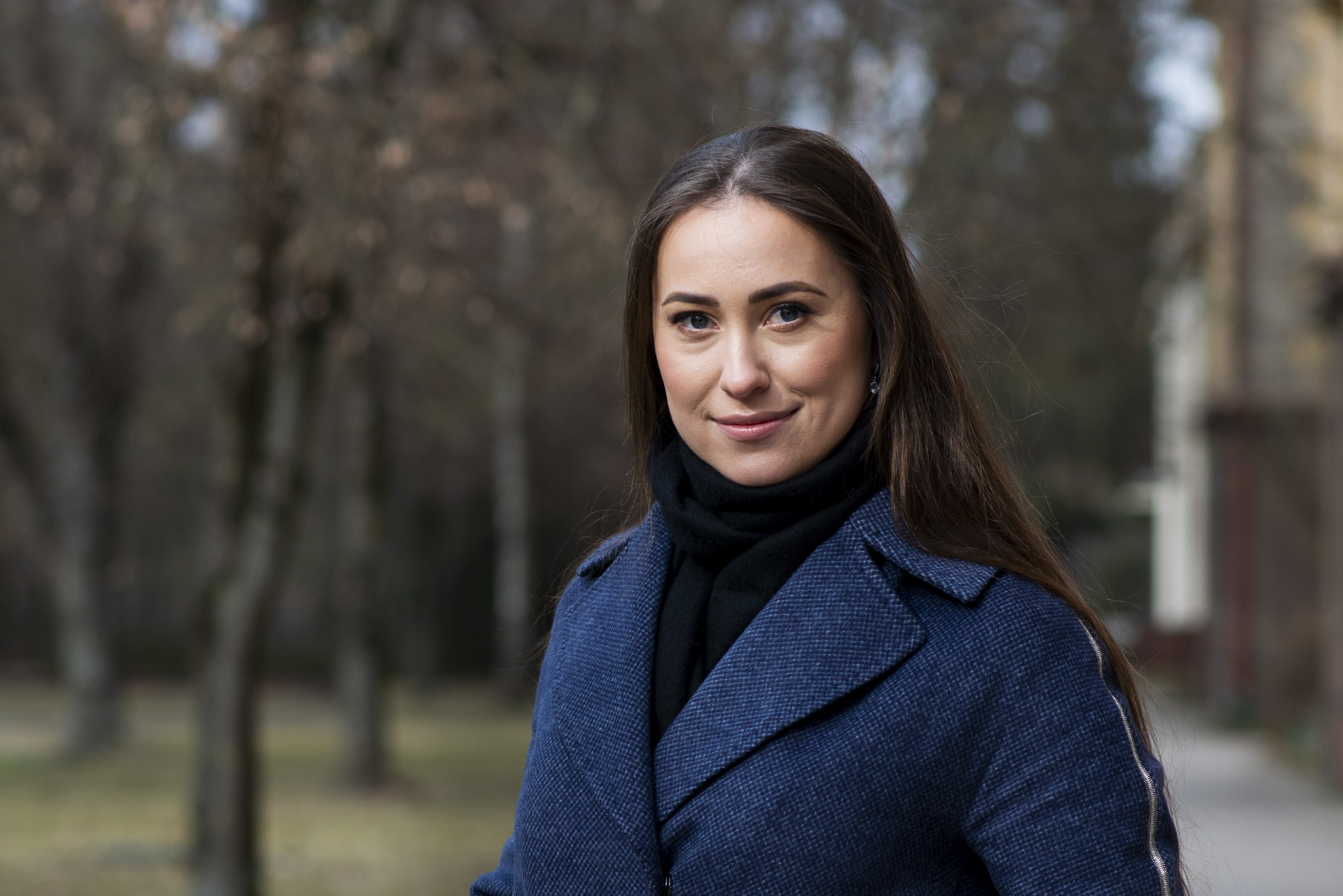
“The biggest challenge was probably making the presentation remotely. There were doubts as to whether it would go smoothly from a technical point of view. Furthermore, the format for poster presentations at the conference was unusual. The presentation had to consist of slides and be delivered within a 3 minute time limit. I literally had to gabble,” explained Modesta Ralytė, a student in the fifth year of her dental degree studies. On 24-25 March, Modesta made two poster presentations at the International Student Conference for Health and Social Sciences at Riga Stradins University, and was awarded first and third place.
Modesta, your poster presentation at the conference, “An investigation into the Effect of Gallic Acid on Streptococcus mutans Biofilm Formation and Acidogenicity”, came first in the Infectious Diseases/Microbiology/Dermatology/Immunology/Allergology category. Tell us what it was about.
These days, there are more and more recommendations regarding the prevention and treatment of dental caries. Individual guidelines concerning the risk assessment for cavities are being developed, along with the importance of classical preventive measures, such as the use of fluoride toothpaste and mechanical teeth cleaning are all emphasised. Dentists also heavily rely on dental substances containing ingredients that prevent cavities.
So, the aim is to make practical use of already available disease control measures, and of course, to find new measures to combat dental cavities. It is not surprising that researchers are increasingly drawn not only to the potential offered by synthetic substances or modern technologies, but also to the compounds found in nature and known in traditional medicine, which reduce the virulence of cariogenic bacteria such as S. mutans. Gallic acid, for example, is a substance found in abundance in plants, however its effect on the virulence of S. mutans bacteria has not yet been fully studied.
Together with the supervisor of my thesis, Assoc. Prof. Tomas Kačergius, we examined in vitro how gallic acid affects the biomass, thickness, roughness and pH of the biofilm formed by S. mutans. We observed positive results: gallic acid inhibits the formation of biofilm and the acedogenic properties of S.mutans. So, when providing practical recommendations, it can be said that this substance could become an ingredient of toothpastes, rinsing fluids and other professional dental materials with anti-endogenous properties. Dentists giving advice to patients on their diet should therefore recommend that more food products containing gallic acid should be included in their diet (e.g. green tea, nuts).
 Modesta Ralytė. Photo from Modesta Ralytė personal archive
Modesta Ralytė. Photo from Modesta Ralytė personal archive
This was not your only achievement at the conference. Your other presentation, under the supervision of Prof. Laura Linkevičienė, “Orthodontic patients treated with braces and aligners: a comparison of changes in their dietary, oral hygiene and sports habits”, came third in the Global Medicine category.
Yes, my supervisor Prof. Linkevičienė, an orthodontist, and Dr Indrė Narbutytė, also an orthodontist, contributed to the practical implementation of the study. I am very grateful to them.
In modern dentistry, the topic of my presentation is extremely relevant. The demand for orthodontic treatment is growing, and the choice available to patients to straighten teeth using braces or aligners often depends on how one or another treatment method will change their daily living habits. An orthodontist who is competent, down to earth and able to communicate with the patient “in layperson’s terms” should explain how braces and aligners change patients’ daily routines – oral hygiene, nutrition, and sports. And it is better, of course, if the dentist’s explanations and recommendations are based on scientific evidence.
How important were those two topics to you? Why did you choose them?
I was of the opinion that I would only embark on research work when, and if, I had found an area or topic of interest to me. Otherwise, one is doomed to failure because of the lack of motivation, and time – ultimately, the quality will suffer. So these two studies are what I was looking for. Microbiology and karyology, and orthodontics are topics close to my heart and mind. As a result, I was motivated to produce quality projects.
How did you react to the news that you had been awarded first and third place? What did this achievement mean to you?
When your work is noticed and is appreciated, it motivates you and is very satisfying. I watched the closing ceremony of the conference remotely; I was spending the evening with my uni friends. Our response was unanimous: we smiled, applauded and hugged. I would like to thank the friends in my group – they are the best support team.
Concerning your future plans, are you planning to participate in any other competitions, or conferences, or will continue to explore the topics for which you have received awards?
My biggest and most important plan in the coming months is to successfully complete my studies. Then I very much hope to continue working on these projects.
In my opinion, dentistry is an ideal area for research and discovery, because science is developing quickly in this area. The evaluation commission objectively pointed out the best direction for further research. After the presentation at this conference, I received questions which I consider suggest what needs to be researched in the future. For example, the evaluation commission asked about the negative effects of gallic acid on tooth tissue and oral microflora. In addition, issues concerning smoking habits were not addressed in the orthodontic study. Some orthodontic patients may smoke daily, so the possible effects require further study.

